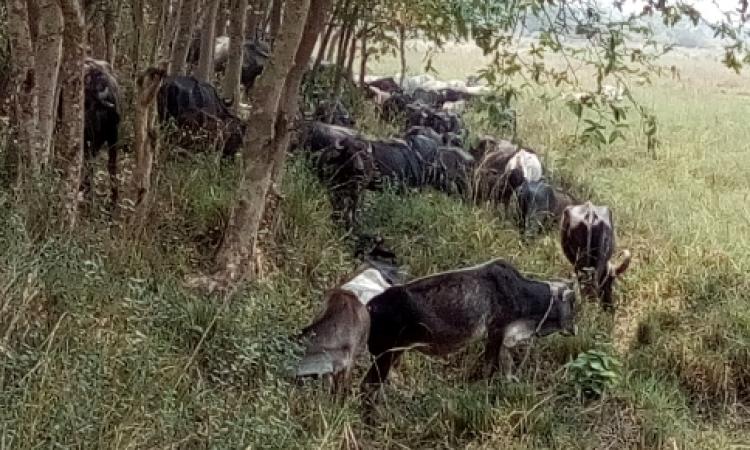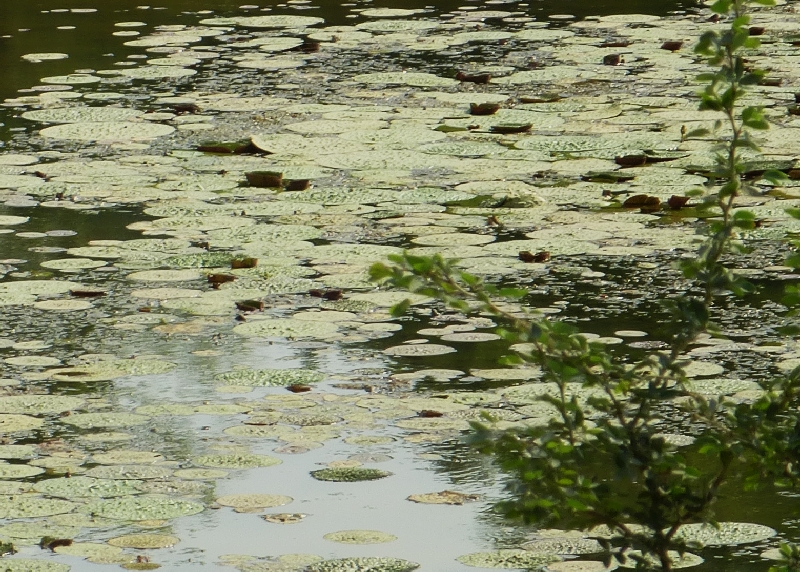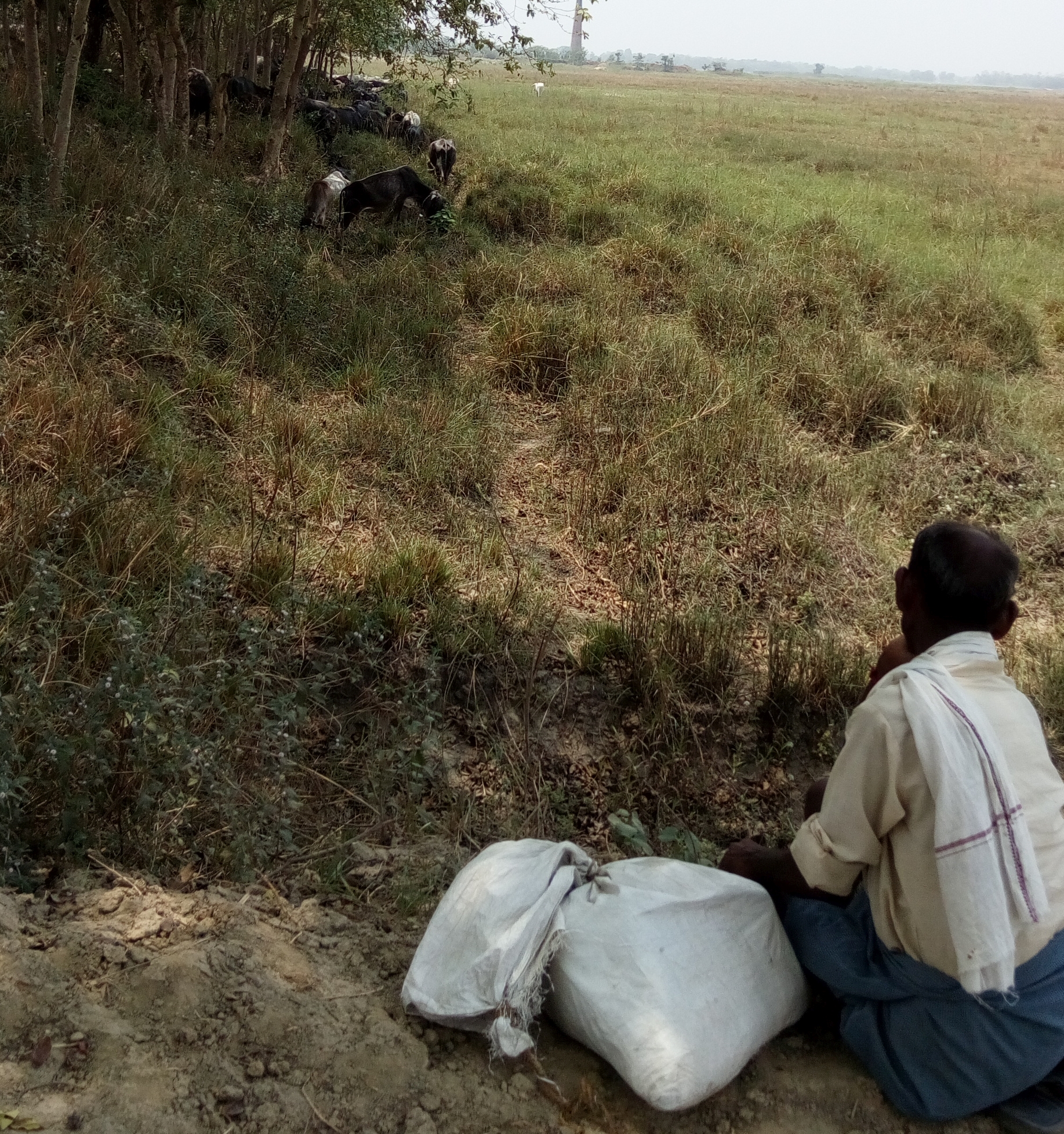
Kishan Yadav has a lot in common with the popular flute-playing god whose namesake he is. They share a name, a caste, a profession, and the land they live on. Despite the separation of 8,000 years between their lifetimes, the two Kishans would be comfortable speaking to each other - Maithili is the oldest living language spoken today. There is also a vast gulf between them. The Kishan I met in Darbhanga district has none of the joie-de-vivre of his namesake.
That is not surprising. Kishan Yadav is caught in a set of debilitating circumstances as impenetrable as the fearsome Chakravyuh mentioned in the Mahabharata.
Not a pastoral idyll: Kishan hails from a small hamlet near the Jhajha railway station in the Jamui district of south Bihar. The district is hilly with sparse forests and a few rivers. These rivers and forests, while not negligible, lack the legendary abundance of Mithila - the area of North Bihar that is reputed to be Sita's birthplace. This region, rich with the snow-fed rivers of Nepal, has an abundance of water even in summer. In Jamui, 200 kilometers to the south, the rivers are spring fed with their lowest flows in the summer. In recent times, overexploitation, diversion of waters and lack of rainfall have all ensured that several rivers are dry in summer. And so it is that in times of scarcity, the pastoralists of South Bihar, including what is now Jharkhand, have traditionally moved north to the banks of the great Himalayan rivers that flow down to the Ganga. Ranjeev Kumar, who works on issues of land and water rights in Bihar explained, 'A group of men from a village are chosen to take the buffaloes of the entire village in search of water and pasture. In return, the village looks after their families till they return.'
Collateral damage: In recent years though, their problems have multiplied. One major reason has been the gradual shift of village ponds from 'common property' to 'privately owned'. Several ponds in Bihar lie on private land. However, it was understood that the water would be used by all in times of need. The ponds on common land were of course, both used and maintained by all residents. These days however, the concept of 'ownership' of ponds has come in. Individuals assert their rights to ponds that are on their lands, and Gram Panchayats lease out the use of ponds to the highest bidder. 
A search for improved livelihood opportunities led the government of Bihar to promote fisheries and the cultivation of Makhana (Euryale Ferox). According to Shantanu Ghosh and Rajnarayan Indu, 'The original use of village water bodies was domestic, providing livestock water in the lean season and in rare cases providing supplemental irrigation to the kharif crop in a bad rainfall year. But over the years, with most of the ponds seen as a good income source for the village by leasing it out to fisherman, fishing is seen as a main use for these ponds.' This has led to the loss of important water sources to the buffalo herders.
The river has not fared much better. The Ulai once flowed close to their village. Now a dam upstream has ensured that it runs dry.
Both these interventions were implemented for laudable goals. The fisheries and Makhana cultivation was initiated to provide subsistence farmers with an alternative means of livelihood. The weir was built to provide irrigation for farmers. But in all this, noone thought of these people, the truly marginalised.
 Persecution: And that is fine by these self-reliant, independent people. What they want is an escape from persecution. Denial of access to water drove them out of their villages and into the relatively water-secure area of North Bihar. But here too, they discovered that the village ponds were closed to them.
Persecution: And that is fine by these self-reliant, independent people. What they want is an escape from persecution. Denial of access to water drove them out of their villages and into the relatively water-secure area of North Bihar. But here too, they discovered that the village ponds were closed to them.
Narayanjee of the Mithila Gram Vikas Parishad, an organisation which works on environmental justice in Bihar, confirmed that oftentimes their buffaloes get stolen at night. If they protest, they are abused and driven away. The people of Mithilanchal clearly see no discrepancy between their worship of Kishan the god, and their ostracization of Kishan the buffalo herder.
There is one way in which the god protects the herder though. Our Kishan's surname protected his life. Mazlum Ansari (32) and Imteyaz Khan (15) were not so lucky. In March 2016, these two buffalo herders, bereft of an 'appropriate' surname, were killed in Jharkhand for their livestock.
/articles/collateral-damage-buffalo-herders-and-privatisation-water